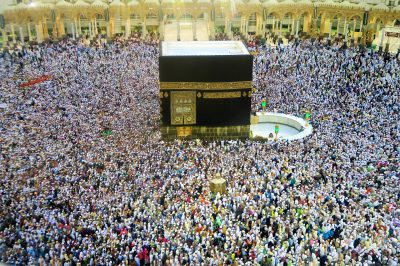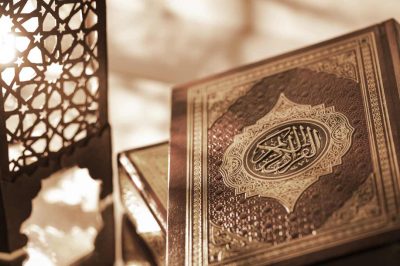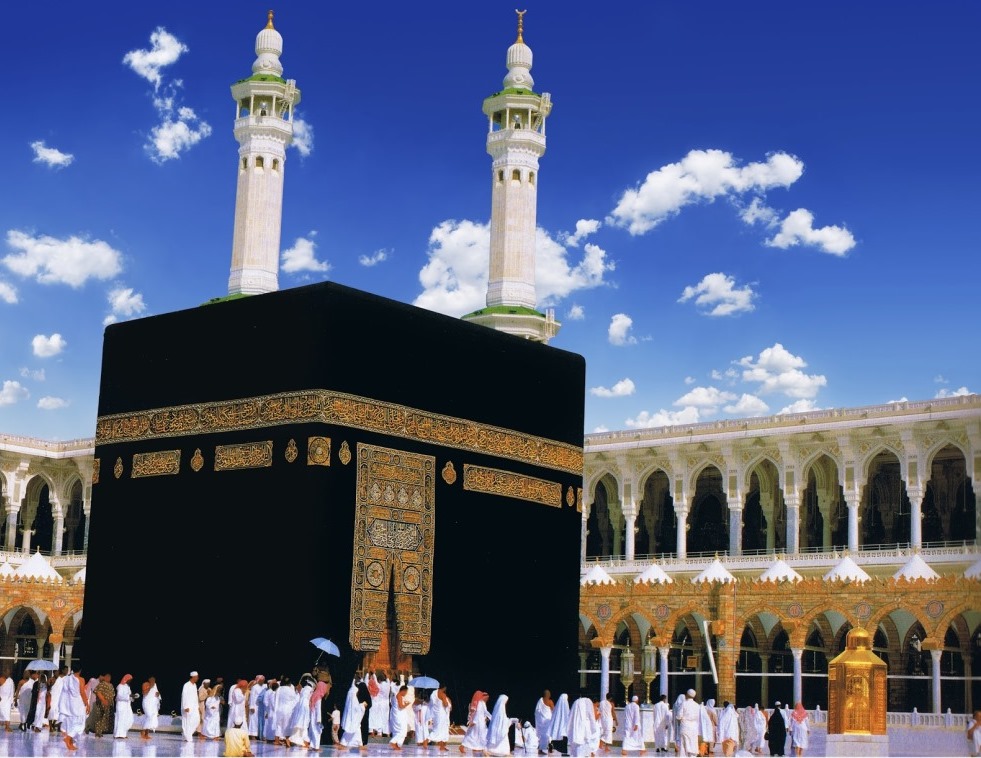Answer
Short Answer:
- 18 months after the Prophet’s migration to Madinah, new Quranic revelations instructed the Prophet and the Muslims to turn towards the Kabah in Makkah when they prayed.
- Changing Qibla was a major milestone and Allah revealed a long passage in the Quran, which runs from verse 106 to verse 150 of Chapter 2.
_____________________________________
Salam (Peace) Thomas,
Thank you for your question and for contacting Ask About Islam.
Changing Qibla: What Happened in Madinah?
An important event took place some 16 or 17 months after the Prophet had settled in Madinah . It was the change of direction Muslims face when they offer their prayers.
While the Prophet was still in Makkah, he was ordered to turn towards Jerusalem when he prayed.
Muslims complied with this divine instruction and continued to do so after they had emigrated to Madinah. There they came in close contact with the Jews.
The Jews used the fact that Muslims adopted their own holy city as their qibla to claim that Judaism was the religion of truth. And that Muhammad and his companions should adopt Judaism, instead of calling on the Jews to accept Islam.
Changing Qibla & Quran Revelation
Now, nearly 18 months after the migration of the Prophet to Madinah, new Quranic revelations instructed the Prophet (peace be upon him) and the Muslims to turn towards the Kabah in Makkah when they prayed.
The Prophet himself was very pleased with this change, which he keenly desired but dared not request.
The Jews in Madinah countered with a sustained campaign of criticism, as they felt that the change deprived them of their argument for refusing to accept Islam. Their new campaign sought to create doubts in the minds of Muslims as to the basis of their own religion.
If it was right, the Jews argued, that the Muslims should formerly face Jerusalem in their prayers, then the new direction is wrong. They also told the Muslims:
Your prayers from now on would then be of no value. If, on the other hand, the new direction is right and the Kabah is the true qibla, then your prayers in the past were in vain.
The Jews also argued that God, the Lord Who knows all, does not change His instructions in that manner. The change clearly showed, the Jews went on, that Muhammad did not really receive any revelation from God.
Reading the verses which speak of this subject and the argument that ensued in Madinah shows that the Jewish campaign was not without results.
Reassurance was needed and was, indeed, provided in a long passage in the Quran, which runs from verse 106 to verse 150 in the surah (chapter) entitled Al-Baqahrah (The Cow). A word of explanation here may be useful.
The True Heirs of Abraham
Arabs revered the Kabah before the advent of Islam.
To them it was the symbol of their national glory.
It was also one of the factors which held the Arab tribes together.
Islam, however, requires of its follower’s total, undivided loyalty.
Muslims must dedicate themselves wholly to God and the cause of Islam.
The Prophet’s companions must, therefore, abandon all their former loyalties, tribal, racial, or national. Hence the need to separate their worship from their traditional reverence of the Kabah.
To accomplish this, they were ordered to turn towards Jerusalem when they prayed.
After a period of time, when the Muslims had accepted the new situation – moving away, in the process, from the rest of the Arabs – they were taught to regard the Kabah in a different light.
They were told to face it in their prayers because it was built by the two Prophets, Abraham and Ishmael, as a place wholly devoted to the worship of God alone.
Answering Abraham’s Prayers
Thus, it becomes part of the heritage of the Islamic nation, which has come into existence by way of answering Abraham’s prayers to raise among his seed a Prophet who would teach them the true religion.
Thus, having achieved the objective of making the Muslims turn to Jerusalem in their prayers for a while, it was now time to give them their own distinctive qibla – the Kabah, the first house of worship ever built.
This process made the Muslims keenly aware that they were the true heirs of Abraham and his religion, based on total submission to God.
To be distinct from others is very important when one speaks of faith and worship, for worship is the visible expression of the beliefs which take root in the soul.
If worship is visibly distinct from that of other religions, then it strengthens the perception that the religion itself is unique. The purpose of giving the Muslims their own qibla must be seen in this light.
I hope this answers your question. Please keep in touch.
Salam.
(From Ask About Islam archives)
Please continue feeding your curiosity, and find more info in the following links:




